
What should you do when you don’t get a promotion?


When you don’t get a promotion that you deserved in your workplace.When you don’t get a promotion that you deserved.Ways and strategies to handle the situation of the promotion denied.
Ideally, your boss will reward you with a promotion when the time comes. But what if that time has passed and you are left tapping your foot? Now you will think to offer him a little nudge. After all, it never hurts to ask. Once you’ve asked for the promotion or the raise you believe you deserve, your manager calls you in to talk. Then, he met you with a shake of the head: “Sorry, not this time.”
Whatever you do, don’t panic. Yes, this response will make you feel like you got a punch to your soul and a hit to your delicate ego. You might feel frustration, disappointment, and even anger. Yet, it’s essential to keep yourself together and survive this situation. You should realise that this is a crucial time in your career.
Rather than storming out of your employer’s office, take these proactive steps to help you qualify for that promotion in the future.
Proactive steps to help you qualify for a promotion

- Thank your manager
Take a moment to process what just happened and then swallow your pride. Now, genuinely thank your employer for taking the time to consider your request. We know that, after receiving the disappointing news, this won’t be the easiest thing to say. But it’s a meaningful gesture that will likely mean a lot to them.
- Ask for feedback
Even though you might want to leave the room as soon as possible, stick around and ask your boss for feedback. It might add some salt to the already gaping wound, but soliciting feedback will show your employer that you are forward-thinking, and you are ready to continue to grow and work even harder.
Ensure the feedback is accurate and that you can set actionable goals to overcome the setbacks. If he says, you need to “do better work,” push for some details. What specific areas do you need more attention? What are the different ways you can use to improve?
- Map out a plan
After leaving the meeting room, try not to dwell on the negative news. It’s time to take proactive measures toward that promotion you are after.
With your employer’s feedback, map out a plan for yourself. It doesn’t need to be a five-year plan. Instead, set some short-term goals you can achieve within several months.
- What can you focus on improving yourself?
- Are there any extra tasks you can add to your workload?
- How can you prove you are skilled and qualified?
When setting your goals, try following the SMART method: Specific, Measurable, Attainable, Relevant, and Timely. Setting realistic, specific goals is essential, especially when you know what exactly you want your next step to be.
- Keep tabs on your wins
There is no need to document your every move, but try starting a brag book. You can use a small notebook, which you keep in your desk drawer or can use a Google document. That’s up to you; it doesn’t need to be very large. In your brag book, start logging your gains. Here are a few useful examples:
- You completed a big project well before the deadline,
- When You received positive feedback from your client,
- Ifsoever You organized a new research committee,
- You identified a problem and resolved it before anyone noticed it was a problem.
Note that these examples are vague. You should include more details to help quantify your successes.
Make an attempt to add more to your brag book each month or each week. When it comes time to get considered for a promotion again, revisit your brag book to remind yourself of your achievements.
- Stay focused on yourself
Sometimes you may start comparing yourself to your colleagues.
- How does Joseph have a senior title when he’s late to work every single day?
- Why did Molly get the promotion when you completed more assignments than her?
However, it leads to rabbit holes of frustration, anger, and feelings of helplessness. After a promotion gets rejected, the only person you should focus on is yourself. Stay focused on yourself and your performance. Analysing co-workers’ actions will be counterproductive.
- Pat yourself on the back
Yes, you deserve a pat on the back. It took a lot of courage to ask for that promotion, but you did it. At least now you are not left in the pit of darkness. Instead, you have spent time taking a good look at your job, and your performance and you have created clear steps that help you achieve your goals.
Try not to sweat it. It might feel slightly cramped when you bump into your employer at the coffee maker the next morning. Fret not. Just offer him a smile to let them know it’s fine and that you are moving forward.
- Remember you have options
You should never quit your job just because you were denied a promotion. That’s absolutely a wrong reason to quit your current position.
But sometimes this punches to the gut and make you feel like you’d thrive better in a different work environment or a different position. There are always more opportunities out there, and sometimes that’s a nice thing to keep in mind.


How to mingle with a colleague you hate to be with?

Colleagues you hate in the workplace is a tricky situation to handle. Ways and strategies to manage a colleague you hate in your workplace.
You show up to an official meeting early and the only other person sitting there was someone you don’t like. As it’s too late to walk out of the room, you sit down in a corner far away from the person. Then, you spend the next few minutes wishing someone else would arrive at the spot. What can you do?
We are not always going to like all of our co-workers (and not everyone is going to like you). Still, there are a lot of steps you can take to make sure you maintain a stable with everyone.
It’s worth the effort. People with close relationships at workspace are more productive, engaged, and successful than those without. It makes sense, doesn’t it? Most people go out of their way only to help others they know and like. And this competitive business world, having allies is always a good thing.
Here is how you can do it.

How to get along with a colleague you hate to be with?
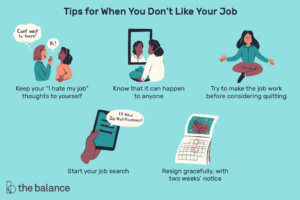
- Start by taking a look at yourself
Chances are if you don’t like a colleague, it’s not their chronic lateness to meetings or failure to refill the coffee maker that really bothers you. It’s probably something about their character and personality. In many cases, this trait might closely match something you see in yourself. What can help you is taking a deep and honest look at yourself?
- Why do you have an issue with this co-worker?
- What is the trigger affecting your perception?
- Do you see those lapses in yourself?
If you accept yourself and your faults, it can help you control your reaction to co-workers, which is a lot easier than expecting a person to transform into a different person magically.
- They know you don’t like them
Those co-workers you don’t like? They probably know about it, and that can only make things worse, creating a vicious cycle of rising tension and passive-aggressiveness.
Your feelings about your colleagues will get mirrored in your attitude and behaviour towards them. If you like someone, you are probably going to be gracious and kind towards them. But if not, you will likely be more impatient and irritated, which will get redirected back to you. People who you don’t like to get along with are going to find ways to impede and frustrate you. So, it’s critical to act fair, impartial, and professional.
- Find common ground to try a little kindness
Despite how much you might not like a colleague, there must be something you two like (or hate). Finding out your mutual likes and dislikes can be a solid foundation for a conversation. Maybe both of you think that Drake’s continuing popularity is a mystery. If all else fails, there are other tried and true topics: the weather and the commute. Sure, griping about traffic or humidity might not seem like a lot, but having something in common is a crucial first step.
Then again, show a little generosity and kindness.
Running out to grab a snack or a cup of coffee? Ask your co-worker if he or she would like to have something too. Try paying a disarming compliment to the colleague you don’t like. For example, focus on something you actually do like about them (a new haircut or outfit), and tell them about it. Genuine compliments amplify positivity, signalling that you have noticed and value someone. Think about it, wouldn’t you love to heed that you managed a client’s query brilliantly or that your hours of got preparation paid off with a fabulous presentation? In the end, the hunger for acknowledgement is universal. In fact, it can be a vital key to unlocking a new relationship.
We are not always going to like all our co-employees, but that doesn’t imply that we can’t make the best of it. With a little compassion, perspective, and empathy, you can get along with a colleague you don’t like.


What are the best strategies to reduce employee churn?
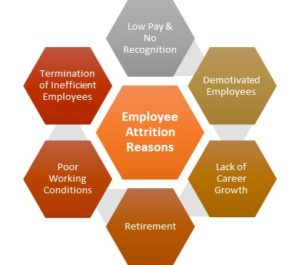
Employee churn happens for various reasons. Ways to curd employee churn to Increase employee retention in a company. Employee churn happens because of the negligence of employers.
The job landscape is very competitive that many candidates leave their jobs. Sometimes they go in the middle of training for another company offering more money or better benefits. As you pay a lot of effort, time, and money to find a suitable hire and train them, the last thing you want to do is losing them to competitors just as they are hitting their stride.
Unfortunately, if you are not taking proactive steps to focus on employee turnover and retention, that is what exactly going to happen.
Here are eight tactics to help you reduce employee turnover and keep those top performers on your payroll:

Eight tactics to help you reduce employee churn

- Hire the right people.
Employee retention starts with outstanding recruiting. Finding the best employees is the first key to cutting turnover. So, interview and screen candidates carefully. Apart from just ensuring they have the right skills, make sure that they fit well with the company culture, managers, and co-workers.
- Offer flexible work options.
Your workers want to build balanced lives, with time and energy to focus on both work and home. When you help them find that balance, they will be happier. It means they will become more productive and more loyal. You can let them shift their working hours to avoid a lousy commute or work from home occasionally. By doing this, you empower them and allow them to create the balance they crave.
- Build an attractive pay and benefits package.
Most employees expect a general salary, health insurance, and paid vacation, and so on. Ask your staffs what kinds of perks would be most meaningful to them, and then do your best to offer those benefits. Try to avoid those items that may draw initial attention but won’t influence long-term retention. Focus on advantages that would tend to make people stay with your firm for the long haul.
- Show your appreciation.
When your employees do things well, make sure they know you noticed by expressing your gratitude. It can be a powerful weapon for employee retention. The goal here is to develop an encouraging, positive work atmosphere. When your employees feel appreciated, acknowledged, desired, and motivated, they stay a long time. The best thing is, this method to decrease employee turnover is free. You just need to use your words.
- Provide opportunities for career development and promotion.
Every employee expects growth in their respective field. If they get stuck in a position for years without promotion or growth, they will feel like you don’t care about their future. That can lead them to seek greener pastures elsewhere.
To avoid this issue, develop clear career paths for all your employees. Show them how they can progress and what they should do to earn promotions. Then, provide a lot of opportunities for career development and help them achieve those goals. When workers feel like you have invested in them as individuals, they will get more engaged and more likely to stay.
- Build a culture of communication and transparency.
Your employees will want to stick with your business if they believe in your culture. You can show them that they can develop personally, succeed professionally, and have fun in the process by working with you. Then, they will stay for long years. To do so, you must interact with them well. You must be as transparent as possible. Ensuring clear communication with your staffs allows you to be honest, as well as encouraging. Transparency helps resolve many problems employees might have, which sometimes get built up and unresolved—ending in turnover.
- Make sure you align purpose and values.
Employees who don’t connect with the mission and values of your company will start to look elsewhere. Current and potential workers want to know how an organisation is making the world a better place, as well as how their post plays a role in this greater purpose. Emotionally, they should feel connected to what you stand for.
- Recruit good managers and train them well.
There is a well-known saying that people quit managers, not jobs. Never let that happen to you. Look for managers who have outstanding people skills. Then provide further education and guidance so they can sharpen those abilities even more. You may want to begin with a top-down audit of your management team. Your management team must be personable and able to lead. Poor managers also make it more challenging for an employee to work. If the job is harder than necessary, an employee might find it not worth it to work there any longer.
Employee retention is so crucial that you must make some attempt to enhance your company’s efforts. You may think that all your rock stars are happy and comfortable in their job roles. But it won’t take much time for their eyes start to wander. Follow these eight suggestions, and you should be able to keep them engaged and loyal for years to come.


How to deal with incompetent colleagues


Incompetent colleagues are common in workplaces. Dealing with Incompetent colleagues needs tolerance and guidelines to have a smooth relationship.
Do you have hapless co-workers who consistently underperform? In this competitive professional world, employees need to work in teams to accomplish collective goals. Sometimes they need to partner up on a budgeting initiative, and other times are working on individual segments of a broader vision. Both way, the performance of the team is affected by the people within that team. Regardless of how well you do things individually, your project and your reputation could get affected positively or negatively by your teammates.
Having smart, talented, experienced teammates is great. Your achievements are amplified and supported by those around you. But what if you have an incompetent co-worker on your team?
It doesn’t necessitate that the co-worker has done something wrong or egregious. It doesn’t mean he is lazy or stupid. He may seem incapable, due to lack of experience or potential to perform to an adequate level.
So how will you deal with Incompetent colleagues when it endangers your own performance? Know it below.
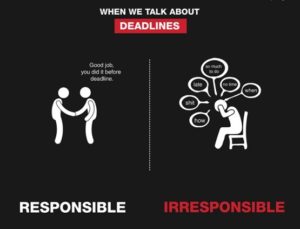
How do you deal with Incompetent colleagues?

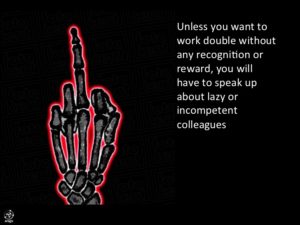
- Set clear expectations
Your first job is to ensure everybody on your team is clear about the expectations of the project. It must apply on several different levels.
First, you must make sure your co-workers are all aware of their responsibilities. They should know the level of effort and skill necessary to execute them, and the target objectives they must meet.
- If your co-worker knows he is over his head, it will be the time for him to bring it up.
- If he is incompetent because he is unprepared for the responsibilities, this is an opportunity for him to realise it and request his removal from the project.
If everybody is on board with the expectations, there is nothing more you can do at this point.
- Offer your help
Let’s assume your co-worker is overwhelmed but can’t withdraw from the project for one or another reason. In this scenario, you can offer them your help and guidance. It ensures your co-worker lives up to his responsibilities. Sometimes a one-on-one sit-down is all it takes to hash out a few issues and get someone back on course.
Now let’s assume that the Incompetent colleagues don’t understand that his performance may be comparably weaker to the rest of the team’s. If this is the situation, you can offer your help as a backup. For example, when you meet the person, you can say something like, “Hey, I know you have got this. But in case, if you hit a wall, let me know, and I can help you out.”
- Provide additional resources
If you have offered your help but that still doesn’t seem to be enough, you’ll have to take additional steps to get your co-worker the resources he needs. It is also true if your co-worker is responsible for something outside your area of expertise.
There are a variety of forms.
- You could suggest a training session or online resources for him to consult.
- You could direct him to one of the industry experts you know who can offer some extra advice.
If you have an intern or assistant, you can lend him the workforce to tackle the simpler responsibilities he’s dealing with.
- Exchange responsibilities
Is there any reason why you have got forced into your given roles on the team? If no, nothing is stopping you from exchanging responsibilities.
Let’s say one of your team members is incompetent when it comes to performing background research, yet he got assigned that role for the group. Another teammate is weak when it comes to number crunching, but the “incompetent” employee excels at it. Simply have them exchange their responsibilities to make the most of each of their abilities.
If you work as a team, you can understand each other’s strengths and weaknesses. As long as you are not interfering with any grand plan, you should have no problem working together for the best possible overall result.
- Confront the Person
Is none of your strategies to improve the situation are making anything better? Then, speak bluntly and openly to the person who’s the subject of your concern. Be polite and professional. But point out that you are concerned about his performance as it relates to the whole team.
Don’t judge or insult the person’s capabilities. Instead, identify the scenario as a potential weakness that can get improved. Work together and figure out a mutually agreeable solution. It might mean requesting additional team members or asking the person in question to talk to the boss.
- Explain the Situation
Is none of your strategies has worked, including confronting the person directly? Then, you can consider going to your boss and explaining the whole situation. Again, be polite and professional. Never disparage another worker. Instead, explain the situation objectively and highlight your efforts to resolve it. Ensure it get done on time and submit before the completion of the project, so there can be time to rectify. You can also get it done after the end of the project to explain any missing pieces.
Incompetence is something you will experience in every workplace and every industry. We are all incompetent at something. So, it’s inevitable you will eventually be placed on the same team as someone incompetent at the task at hand. When you do, use these approaches. It helps improve the situation and mitigate any possible losses.
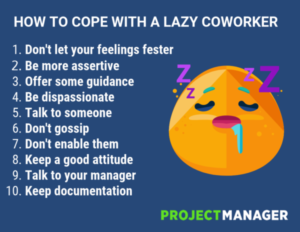

How to optimise LinkedIn in the right manner?

Optimise LinkedIn to get the right Jobs. Optimise LinkedIn in recruiters viewpoint. Optimise LinkedIn with the right keywords for recruiters to find you with your preferred skillset.
Do you think having a professional LinkedIn profile is useless? Then you must read this blog. Knowing how to represent yourself on LinkedIn and other social media channels can have a significant influence on whether you get an interview and land a job or get passed over by the recruiters. Trust me. A professional LinkedIn profile is an ideal key for job seekers.
Here we discuss a few LinkedIn profile help for optimising LinkedIn to help put you at the top of employers’ minds.

How to optimise LinkedIn in the right manner?
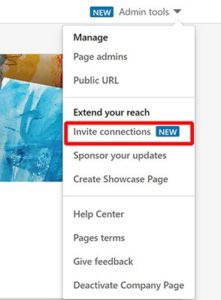
 Look professional
Look professional
The image that you upload to your professional LinkedIn profile is your first impression to an employer. If your image is unprofessional, most recruiters won’t even take the time to look at the summary and experience sections, which you worked so hard to compose.
Follow these simple steps while choosing an image:
- Choose an image that isn’t blurred
- Only have you in the picture
- Crop the photo from chest to top of the head
- Dress appropriately for your field
- Never use a selfie
Millennials reading this, strictly avoid selfies if you wish to land on your dream job.
- Highlight your achievements
Don’t concentrate only on what you did on your job; focus on the results. Did you handle a project that led to an increase of 35,000,000 in revenue? Mention the amount. It’s much more impressive when you attach the results.
Here are a couple of examples of how to highlight your professional accomplishments:
GOOD: Reorganized team to improve efficiency on the assembly line, leading to savings of 7,000,000 annually.
BAD: Managed assembly line team.
GOOD: Implemented a content marketing plan that increased website traffic by 250% over six months.
BAD: Developed a content marketing plan.
The more detail you mention to your professional LinkedIn profile, the better. Employers don’t want just to know what you did previously; they want to know what result your actions created in your previous organisations.
- Network
Consider the LinkedIn platform as a giant networking event with billions of attendees. Then lace up your virtual shoes and begin running around the floor.
Search out like-minded individuals who you feel might help you in your career, as well as those who you think you might be able to help. LinkedIn offers the following search capabilities to aid you to connect with the right personalities:
- Company
- Keyword
- Seniority
- Size of the company
- School
- Title
- First and last name
There are more options available for those that have premium job seeker accounts, so check out them and see if it’s for you. Take benefit of this immense tool for networking and make as many meaningful connections as you can. Be sure to mention a detailed note about who you are and why you want to connect. Otherwise, you will be looked at as a spammer and get ignored.
- Become a thought leader
Employers want to know whether you have the knowledge and experience they seek to fill a job role for which they are recruiting. The publishing tools on LinkedIn provide an excellent outlet for you to present your skills in the form of articles.
LinkedIn does an outstanding job of promoting these articles, especially those that become popular. The experience you present in your articles can reach a lot of eyes, some of which may belong to someone looking to recruit you.
- Write about what you know
- Ask your friends to share your posts
- Link from any content you posted on your website or any other content
Ensure to follow the tips above to make sure that your articles become popular
 Share useful information
Share useful information
The LinkedIn publishing tool is an excellent way to get noticed and to start getting followers. The more you publish, the more content will be visible to the employers or recruiters who come across your LinkedIn profile and see you as a thought leader in your field.
LinkedIn is such an excellent resource for putting yourself at the top of employers’ minds. If you use it wisely, you can put your career on the fast track. And if you use it poorly, you will risk missing out on a lot of excellent opportunities.

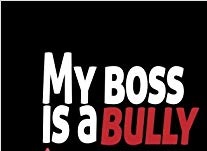
Here are the best tips to save yourself from a bully boss

Save yourself from a bully boss. The best Tactics to deal with a bully boss who harasses in the workplace. Save yourself from a bully boss in the ways proven.
Have you ever felt like your boss at work was bullying you? Not only you, but most of the employees around the world had bosses who were difficult to deal with. A few kinds of bosses are:
- Unprofessional bosses,
- bosses who put you in a no-win situation,
- backstabbing bosses,
- Bosses who are downright bullies.


Here are four tactics useful to deal with your demanding boss or to save yourself from a bully boss
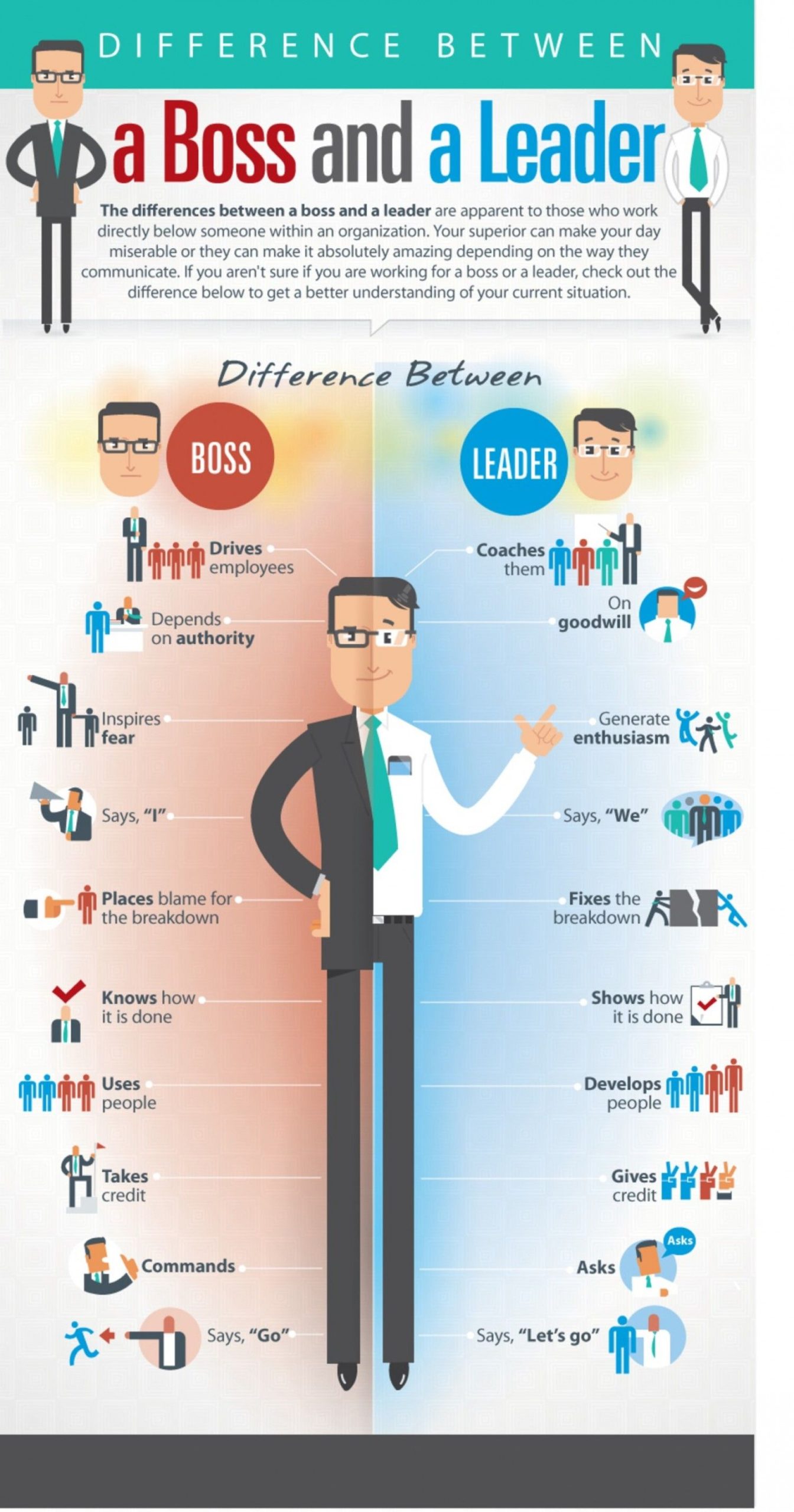
Four strategies useful to deal with your demanding boss
 Be Proactive.
Be Proactive.
In all likelihood, you are disappointed with your troublesome boss because he or she consistently displays terrible behaviour. It is the pattern of bad behaviour that drives you crazy (or in some cases, the boss’s inconsistent behaviour, as in you-never-know-what-you’re-going-to-get). The right way to deal with a problematic employer is having a plan of action in place.
The key is to expect bad behaviour from your boss always. Have an action plan ready. The moment your boss misbehaves, put your plan into action. If your employer is on his/her best behaviour, reinforce the good behaviour (“Nice meeting.” “Thanks!”).
Be proactive by confronting the situation with a positive mental attitude. Display confidence and stay poised. If your employer is a bully, it will show that you are not intimidated by the bullying behaviour.
- Be Prepared.
You likely know the troublesome boss’s pattern of bad behaviour, so anticipate and prepare your responses before. Write them on index cards, and prepare to deliver them.
“Boss, the things you do isn’t inspiring me…” or “…it only makes us feel like you don’t appreciate our work…” or stronger statements, such as “That kind of behaviour is unacceptable.”
You also should anticipate the coming back of lousy bosses and have your answer or action plan in place. If the boss starts to rant and rave, you can leave and say, “I’ll come back when you are calmed down and in a mood to discuss.” Consider it as a chess match, and be ready for several “moves” in advance.
You will also need to be ready for the fallout of standing up to a difficult or bullying boss. The boss might single you out for an even worse treatment or might sanction or fire you. That is why it is essential to think about things before. What are you willing to do? What are your choices? Can you deal with the possible worst impacts?
- Be Professional.
It is very important. Always take the high road. Follow proper methods for registering complaints with Human Resources, or higher-level superiors. Maintain a relaxed and professional demeanour in dealing with your demanding boss, and don’t get into a shouting match or let your feelings get out of hand. Don’t resort to name-calling or rumour-mongering, but be professional and straightforward.
- Be Persistent.
It isn’t likely that your complicated boss issue will change overnight, so be ready for the long haul. Furthermore, be persistent in calling out your boss’s bad behaviour and putting your plan into action. Your colleagues might follow your lead and start to stand up to the problematic boss as well (although you should be ready for the boss to try to turn them against you, or for your colleagues possibly lack of support). The key is not to let your boss get away with continuing his/her bad behaviour.
If you are being bullied at the workplace, it’s crucial to remember that it’s not your mistake. The issue lies with the bully, not with you. Don’t think that just because you’re a victim of bullying at work, you have to leave. If you like your company and get on with your colleagues, stand your ground and fight for it. Don’t give your bully boss the power they crave – Do not let them push you out.
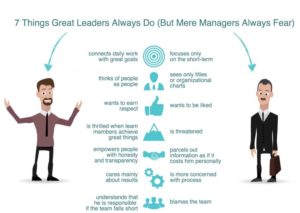


What makes an employer great?

What makes an employer great? A Good Boss is the one who takes care of his or her employees in the most imperative way
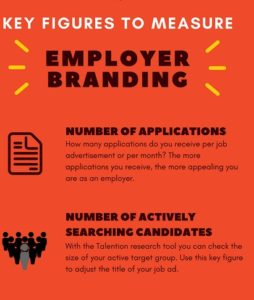
What makes an employer great?

Bosses are often the prime reason for people either loving or leaving their jobs. A boss is an umbilical cord that links employees to an organisation, and if that cord has broken, the employees will leave eventually. If you are a lucky employee who has a great employer, don’t take that relationship for granted.
Here’s what makes an employer great:


- Sets clear expectations
A great employer sits down with a new employee right from his first day and identifies priorities. She also discusses the performance review and how she defines “exceptional performance.” She holds discussions frequently in regards to expectations from that point on.
A powerful boss doesn’t tell her people how to get the work done. She talks about outcomes and results with the employees, and they are entrusted to execute the details and the process using the right-fit methods.
Expectations are set in different ways. Sometimes in a formal planning session, and other times in an informal conversation about a particular issue.
- Coaches
A great boss sees her position as both a coach and a leader, someone who educates and encourages her players, who led her team by examples.
An effective boss does not assume her team know what to do and how to do something. Like a good coach or mentor, she calls in the plays from the sidelines. Often a boss may get tempted to run in the game and play it herself, while her employees don’t learn a thing. A great boss recognises that success in coaching is found in the balance of control that fine line between being over-controlling and under-controlling. She knows that her presence as a source of help is enough rather than overshadowing her players.
- Gives feedback
Some employers wait until the formal performance review to relay negative feedback to their team. When this happens, your employees will be thinking – why didn’t my boss tell my mistake sooner? I could have tried to do things differently. Giving employees’ feedback along the way creates a coach-player bonding. There’s a sense of communication, of leadership, and cooperation. However, waiting until the performance review for feedback has more of a prosecutor-prosecuted feel, and negative feedback rings like punishment.
- Recognises efforts
Employees need to feel admired. Research shows that human beings thrive more when they get recognised. They just never get tired of it. Nothing works like positive support, and a great boss is well aware of this. She mentions everything she likes that her employees are doing; it’s no surprise that she gets more of those things.
If someone wears a blue shirt one day and gets a lot of compliments about them, that person will undoubtedly wear the shirt again. In this way, human behaviour is undoubtedly not getting complicated.
- Is inclusive
It’s essential for every employee to feel like equals and contribute equally to the team. A great boss creates a work atmosphere based on integrity, trust, respect and one that encourages creativity, innovation, and feedback. Employees in such an environment flourish.
- Gets to know employees
A great employer stops by and says hello to the team. She makes herself available to support them. No matter what she is doing, when employees come to her, she will stop and give them her complete attention.
An efficient manager takes a personal interest in the life of her employees’. She doesn’t pry. She tries to get better recognition for the entire person inside the employee. A boss who understands her employees’ lives is more likely to be sympathetic and, for example, consent to flex-time when required. Workers who feel that their boss is caring and interested in who they are will get more committed to their work.
- Finds each person’s unique talents
A great boss observes her employees to figure out what they do best. She talks to them about what features of their job they enjoy the most. An effective boss taps into and leverages the abilities and skills her employees have. It creates a win-win as she can reap the rewards of employee satisfaction, and employees advance by increasingly inspired and confident about their work, skills, and talents. Furthermore, they feel appreciated that at least someone is there who has their best interests in mind.
A great boss makes a personal investment in the success of her employees’. She takes the time to sit down with them and discuss their goals, and she does what she can to help them accomplish such ambitions.
- Works fearlessly
A great boss encourages her team not to be scared of making mistakes along the way. The mentality an efficient boss puts forward is one that fosters learning, not one that instils fear of making a mistake. It’s about the opportunity, trying something new and different, and getting out of comfort zones. Fear only inhibits growth. Instead, a great employer uses mistakes as tools.
- Is open and truthful
A great employer is direct but sensitive. She realises that communication is essential. If she sees slipping in performance, she never waits very long to talk about it. She won’t dodge the truth, nor does she hang onto or hoard company information that could help her employees. Her employees’ knowledge does not threaten her; instead, she encourages it.
Some employers have a natural flair for leadership, and they motivate and inspires others. Lots of people have inherent characteristics that could make them great bosses; it’s a matter of developing those abilities. A great employer rarely stays great without working at her craft. Greatness can be maintained by attending seminars, management classes and reading books, and doing a lot of self-assessment.


Why thinking outside the box is essential for the success of your organisation?

Why thinking outside the box is essential for the success of your organisation. Big ideas come from forward-thinking people who dispute the usual way of doing business.

THINKING OUTSIDE THE BOX

 Everyone in the world has a different view and individual perspectives. They are influenced by a lot of factors including family, friends, those things that they have encountered in life, and the cultures in which they grew up. Then, people also get the influence of their own characteristics.
Everyone in the world has a different view and individual perspectives. They are influenced by a lot of factors including family, friends, those things that they have encountered in life, and the cultures in which they grew up. Then, people also get the influence of their own characteristics.
Unfortunately, we get mixed messages about the personal characters and quirks that set us apart. On the one hand, we are advised to feel great about ours and to be ourselves. On the other hand, when we act exactly that, we are constantly told to knock it off and conform. These contradicting sentiments can make it troubling to think outside the box. After all, doing so is confirmed to upset people and draw criticism.
On the other hand, if there is one thing in common among the most successful people around the world, it is their willingness to think outside the box without bothering about what others think.
The advantages of thinking outside the box


Here are a few benefits of thinking outside of the box. It can have a positive impact on your studies, career, and even on your interpersonal relationships.
- When a problem doesn’t seem to get solved, your ability to take an entirely different approach could be the ideal key to finding a quick fix that nobody else can see.
- You will stand out from the crowd of ordinary people who follows the same routes.
- As you focus on the outcome and not following a prescribed process, you won’t get ‘stuck’.
- You will make a lot of mistakes on your journey, but you will learn a lot too. Your triumphs will also come with lots of lessons learned.
- You will learn to embrace getting outside of your comfort zone
- You will develop your skills for creativity and critical thinking.
Ultimately, the ones who think outside the box are more likely to become leaders. They are more likely to develop things that are useful and valued by many people. If you keenly observe, you will be able to find out that, most of the successful entrepreneur in this era is somebody who thinks outside the box.
- When they see an issue, they think outside the box to create a better solution for it than anyone else.
- They see an unmet need, and by thinking outside the box find out a way to meet that need.
If you have someone in your personal life who always thinks of exciting and fun things to do, most probably that person can think out of the box as well.

Can you develop the potential to think outside the box?
Just like any other skills, some people come by it naturally. Others have to work on it. Some people have to pay a lot of efforts to learn to think outside the box. However, it is something that anybody can do. Here are a few key things to do that may help you to retrain your brain a bit.
- Don’t stop thinking about an issue when you arrive at an obvious solution. Think of a few alternative solutions that are necessary for taking a different approach.
- Seek out opposing points of view
- Do creative things, even if you aren’t very good at them
- Try to read and watch things that aren’t your usual choices
- Experience and explore unfamiliar things, including foods, art, culture, music, and so on.
- When you fail at something and about to take another turning point in life, write down all of those things that you learned through that failure as quickly as you can.
- Revisit an old project and work on it again using an entirely different methodology
- Change up your daily routine and habits.
- Correct yourself mentally when you say things like, “This is the way we have always done things.”
One of the most profound impacts of thinking outside the box is that it will help you stay flexible. Your mind will not close its door to new ideas, solutions or situations, and therefore you’ll be better able to navigate the ever-changing landscape of business.

Five valuable suggestions on reinventing your career

You are reinventing your career. Make it a pleasure to work in the workplace. Reinventing your career ensures you get placed in the passion of your choice. Emancipate Yourself From a Job You Hate. Practical, inspiring and empowering career change tips and strategies every job hunter and career changer need to know for reinventing your career.
Are you tired of the typical 9 to 5 work schedule and want to take your career to the next level? Then, you should know that the power is in your hands. However, one’s career is mostly similar to a rollercoaster. There are always ups and downs, and it is exactly what makes your profession interesting.
If you are determined and ambitious, then you already have what it takes to win. You just want to reinvent your career path. Here you will find five helpful tips that will assist you to do just that!

Five helpful tips reinventing your career


- Education is essential
Do you want to pursue a lucrative career in a different field? Then, you need to realise that education is an important aspect for you.
- You can pursue another degree course that you have always craved for.
- Maybe you can enrol in another IT course or certificate course for professionals.
- Try and start learning another foreign language.
The possibilities are countless, and the secret to success is growing beyond your professional horizons as much as possible. You cannot reach your dream destination without enhancing your general knowledge and acquiring new skillsets. In a nutshell, pick out the main career path you aspire to follow. Find out what all are its requirements and try to shape your educational needs according to them.
- Work for other departments at your workplace
Working in the same department for many years can be very redundant. So, why not take different assignments every now and then, just to prevent routine and to acquire new things at the same time? Concentrate on departments where you have little or no expertise, such as the marketing department where you can master the basics of both online and offline marketing. Here you will learn how to issue a press release or statement, and you will become familiar with the concepts of branding and so on.
Not only will this benefit you to become better at what you are already doing, but it will actually look good on your resume as well. It will also help you get a raise as your superiors are more likely to notice your hard work and commitment.
- Your Resume Is Your Business Card
Having a polished, well-written resume is extremely important if you want to redefine your career path, as this is the first thing your potential employer gets in contact with, before meeting you in person.
Make sure to state your education and skills clearly, and mention any volunteering work despite how irrelevant it may seem on the spot.
On the other hand, we highly recommend you to read other resumes as well before you focus on writing yours. From this, you will get the concept about how the ideal resume should look like.
- Work on your own!
Freelancing has become extremely popular. As a freelancer, you can become your own boss, and you decide how much you work. Besides this, the freelance experience will surely look great on your resume, especially since it will help you develop new skills and extra expertise.
You can be a copywriter or a freelance writer; if you plan to become a journalist in the near future, it would surely come in handy!
- Be your own boss
The ideal way of making sure that you will get the job you have always wanted is opening your own company.
While it is true that this sounds easier said than done, being your own boss is undoubtedly very rewarding once your business begins to generate a profit. You can move on to the next step, which is recruiting skilled and well-trained employees. Starting your own company will give you the financial independence and the freedom we are all looking for, at a certain point in our lives.
The bottom line is that your job does not have to be boring and dominated by routine. You should be happy to come to work, rather than obliged to do it. One has more control over their job and over their career path than they can imagine, and the tips mentioned above will undoubtedly help you redefine your profession!


Five powerful ways to boost your self-confidence before an interview


Boost your self-confidence to leverage your best in an interview. Boost your self-confidence to accelerate the best of yourself. Self-esteem is the mirror to your pure conscience.

An interview is one of the most daunting, yet most exciting elements of a job-seeking process. It is a process that shows a hiring manager that you are the right person for the position and can also be a source of anxiety for candidates who fear to make mistakes that break their entire opportunity.
To bring success in your life, you need to know how to introduce yourself well before your potential employers. You must start feeling good about the entire interview process to get rid of any anxiety.
- Are you struggling with expressing your strengths and weaknesses?
- Do you want to be open about your skills and qualifications or even describing why you are the right fit for the company?
Then the following five tips will help boost your confidence for any job interview you are looking forward to.

Five tips to boost your self-confidence to attend any job interview


- Conduct an exhaustive research
You must gather as many details as you can about the company to boost your confidence for the interview. You should have fine research about the company as most interviewers want to know how much you know about them. Use their website and other essential news sources to showcase your familiarity with their background and state some of their future goals.
Also, you will handle such questions as: How can you benefit to this organisation? Why do you consider you are the right fit for this organisation?
- Research interview queries and possible answers
There are numerous resources that will exhibit you with lots of information to build your confidence in the interview. Surf on the internet about the possible interview questions you will encounter and prepare their answers. Review the queries carefully and try to say the solutions aloud to feel natural and confident in the interview.
Additionally, you must get informed about the company’s interview system. Some companies use a behavioural based interviewing system, while other firms use different systems. With all this preparation, your interview will progress naturally, and without a doubt, you will be confident.
- Conduct a mock interview
You can ask help from a friend to conduct a mock interview to boost your confidence for the big day. If you cannot find a close friend, you can answer the queries in front of a mirror to get your body language and facial expressions right.
Sit down with your friend and rehearse all your answers to simulate the actual interview environment.
- Do not leave any loopholes
One of the essential steps in getting prepared for your interview is recalling your qualifications for the job position advertised as well as your goals and career history. While you review your personal and professional credentials, you must make sure there are no loopholes that could cost you the job.
Most organisations look for information from the internet about interviewees, so you must ensure your social networking profile is private or presented professionally.
- Is the job really worth it?
Instead of recommending that you don’t think about what the job can do for you, think of what you can do for the firm, you must anticipate some queries from the employers. Many firms will ask potential employees about their salary expectations, so you should have an answer.
Also, you must think about what you can offer the firm to help you concentrate on your strengths, which is what every recruiter is looking for.
Apart from salary, think of whether the job you are applying for is worth your time, efforts, and energy.
- Is it worth giving them the password of your social network?
- Do you feel sharing your confidential data is worth it?
Think about all these factors before attending the interview.
The most critical thing to keep in mind is that you are in control of the way you introduce yourself before the panel of your potential employer or a group of interviewers. Avoid being bashful when presenting your qualifications skills, experience or career goals. Remember that the outfit you wear is also a significant factor. Find a stylish yet professional outfit that you will feel confident in.
You will also exude a better posture and the right attitude during the interview with the right kind of outfit.

End of content
No more pages to load





 Look professional
Look professional Share useful information
Share useful information Be Proactive.
Be Proactive.